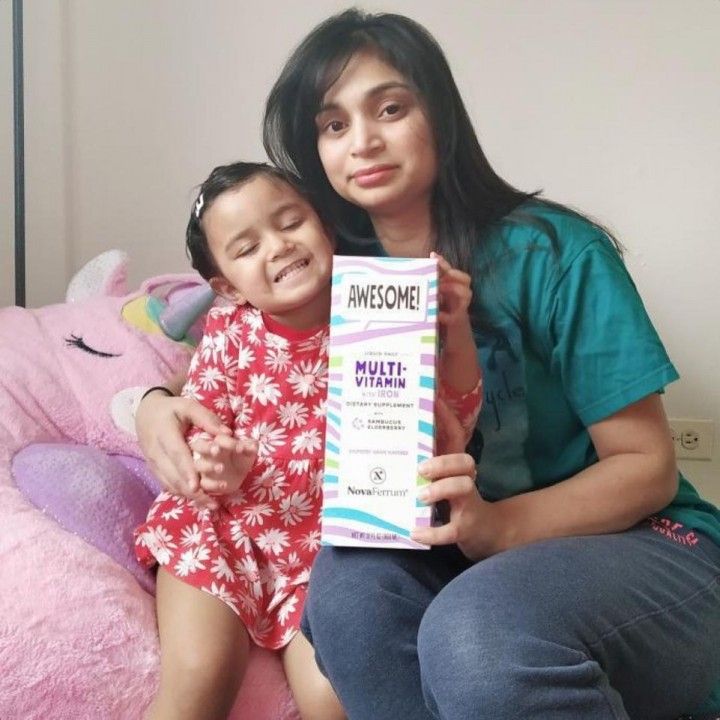Iron deficiency can make you feel pale, breathless, and tired, reducing your concentration. Unfortunately, it is women who are affected by iron deficiency.
According to the National Diet and Nutrition Survey, nearly 25% are at risk of iron deficiency.
Several reasons can cause iron deficiency. One can be due to coeliac disease, where your body does not absorb iron, but usually, the reason behind iron deficiency is the lack of iron in your diet. Luckily you can address this defect with simple dietary adjustments. There are many iron supplements available for women.
Why do women need iron?
Iron is the most important component in hemoglobin. Iron is an essential mineral that helps in oxygen transport to every cell in the body. If the iron content in the blood decreases, the body cannot produce red blood cells, and this interrupts oxygen transport to different organs in the body. The decrease in oxygen level can lead to improper brain functioning, lower energy, and immunity.
What are the foods rich in iron?
Many foods are a rich source of iron, among which Haem iron is the most absorbable form. This particular form of iron is found in beef, pork, organ meats, veal, fish, chicken, and seafood.
There are vegetarian foods rich in iron too, these foods contain a non-haem form of iron, which will not be absorbed by the body, but they can improve absorption. Other foods rich in iron are tofu, legumes, eggs, beans, nuts, brown rice, whole grain bread, spinach, broccoli, dried apricot, etc.
What is the normal level of iron?
Women are commonly at high risk of iron deficiency due to the loss of iron during menstruation. Thus women require more iron when compared to men. Even children are at the risk of iron deficiency, especially when they consume more milk. The calcium present in milk can block the absorption of iron. The normal level of iron required is,
- Teenage girls (14 to 18 years) - 15 mg/day
- Pre-menopausal and Non-pregnant women (19 to 50 years) - 18 mg/day
- Post-menopausal women (51 years and above) - 8 mg/day
- Pregnant women (any age) - 27 mg/day
Especially vegetarian and vegan women are at high risk of iron deficiency. To compensate for this, you can try iron supplements for women. They are specifically formulated to help women get a balanced iron level in their diet.
What are the symptoms of iron deficiency?
The common symptoms of iron deficiency include fatigue, impaired immunity, poor concentration, pale skin, dizziness, reduced energy levels, shortness of breath, headaches, brittle nails, and most importantly, high resting heart rate.
The best way to know if you have an iron deficiency is through a simple blood test. A "full blood count" or "iron studies" will tell you if you have iron deficiency anemia or not.
What is the importance of iron in women while trying to conceive?
There is not much evidence to prove that iron deficiency can cause Infertility or affect women's conception. However, it is recommended that you top your ferritin level before pregnancy. Most of the prenatal vitamins contain some amount of iron.
Studies revealed that iron deficiency reduced the ability to conceive in rats. A study also reports that women had a low risk of ovulatory Infertility when they take iron supplements.
What is the role of iron during pregnancy?
Even though the loss of iron is reduced during pregnancy due to ceased menstruation, the requirements keep escalating. Especially during the second and third-trimester women's blood volume increases to support the baby's blood supply. It is necessary to keep up with the iron levels to support the growing baby and the placenta.
However, it is impossible to achieve 27 mg/day from diet alone, so iron supplements are a must for women. Researcher reveals that iron deficiency during pregnancy can cause low birth weight babies.
Is iron supplements safe for women?
Iron supplements for women are very safe. They are the best option for women who don't eat red meat. Especially during pregnancy, it is tough to maintain an iron level through a balanced diet. However, some common side-effects caused during the intake of iron supplements is constipation. Taking smaller doses of iron supplements can be helpful.
It is recommended that you discuss with your doctor before taking any iron supplements.





